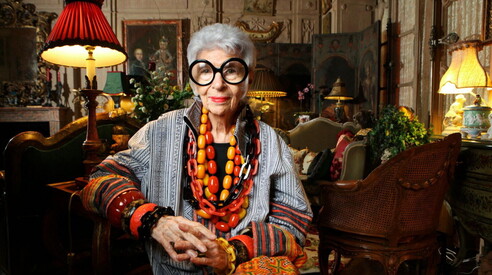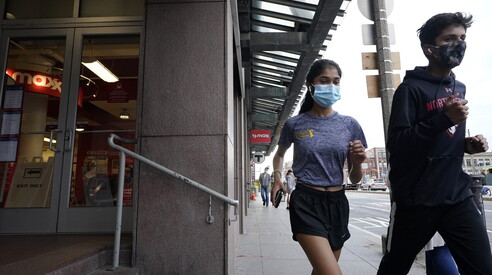Le cause della sconfitta della sinistra italiana a uso e consumo dei corrispondenti dei giornali stranieri
Why the Italian Left was considered unfit to lead Italy
 Alfonso Berardinelli (Rome, 1943) is a literary critic and author, who since giving up university teaching in 1995, now divides his time between writing books and writing articles. Among his published titles, “L'esteta e il politico: sulla nuova e piccola borghesia” (1986), “L'eroe che pensa: disavventure dell'impegno” (1997) “Autoritratto italiano”(1998), “Stili dell'estremismo” (2001), “La forma del saggio” (2002), “Che noia la poesia” (2006 with Hans Magnus Enzenberger), “Casi critici: dal postmoderno alla mutazione” (2007), “Poesia non poesia” (2008).
Alfonso Berardinelli (Rome, 1943) is a literary critic and author, who since giving up university teaching in 1995, now divides his time between writing books and writing articles. Among his published titles, “L'esteta e il politico: sulla nuova e piccola borghesia” (1986), “L'eroe che pensa: disavventure dell'impegno” (1997) “Autoritratto italiano”(1998), “Stili dell'estremismo” (2001), “La forma del saggio” (2002), “Che noia la poesia” (2006 with Hans Magnus Enzenberger), “Casi critici: dal postmoderno alla mutazione” (2007), “Poesia non poesia” (2008).
 The end of an epoch, there's no other way to accurately define the outcome of the recent Italian elections, and even more so the conquest of the city of Rome by a seriously rightwing Centre Right coalition. In order to understand the new Italy that is being ushered in, according to literary critic Alfonso Berardinelli a brief meditation needs to be made on the nature of the “fundamental values of modernity”. “If development, freedom, wellbeing and communications can be defined as more or less neutral values, common to all sides of the political arena, traditionally the right has pursued them placing the accent on authority, merit, efficiency, respect for the creation of wealth, law & order. The Left has generally put the emphasis on equality, the importance of hearing the voices of the poor and the marginalized, the redistribution of wealth, tolerance and permissiveness". “If development, freedom, wellbeing and communications can be defined as more or less neutral values, common to all sides of the political arena, traditionally the right has pursued them placing the accent on authority, merit, efficiency, respect for the creation of wealth, law & order. The Left has generally put the emphasis on equality, the importance of hearing the voices of the poor and the marginalized, the redistribution of wealth, tolerance and permissiveness”. “The fact is that so called “high culture” (which is not so high these days anyway, considering how Universities are part of a mass culture) in Italy has lost a lot of its original prestige. It is closed in on itself, and lives in its Ivory Towers, especially in cities like Rome which is its ideal location, and has no time for the “vulgar concerns” of the vast majority of the population”. “Placing its trust in a discredited “power of cultural persuasion” did not in fact permit the Left to challenge Berlusconi effectively in his guise as “Mr Average Italian”. Berlusconi infuriates the Left because he is protean, over the top, unsophisticated and predictably unpredictable. In terms of his media image, what you see is definitely what you get”. “Appearance as substance” doesn't work at all for the Left, “whose political leaders – despite many of them being perfectly decent human beings – frequently appear to be “too good for the electorate”, thus snobbish, presumptious or hypocritical”. As though they were merely playing a part, whereas political values are only credible “when they are physically interpreted by someone who obviously seems to represent the social strata with which those values are identified”. Alfonso Berardinelli has also written about the Italian phenomenon of “anti-politica”, the formal rejection of the “rules” of standard politics, and he feels that it is severely underrated as a political system in its own right. “The Italians don't trust the political class, even those leaders who appear to be the “good guys”, such as Walter Veltroni and Massimo D'Alema. The Left have attacked the “anti-politica” phenomenon imagining that it was just synonymous with “Berlusconismo”. In my view a real Left wing movement should be paying more attention to Society and less to the Corridors of Power, learning how to view politics through the eyes of those who don't actually practice it. At its best, the whole “Sessantotto” movement was a a good example of this, but at its worst, it was simply a seed bed for producing sectarian mini parties and self styled future leaders”. So are Berlusconi, Bossi, Fini and Alemanno better at getting, or at least appearing to get, retail politics through the eyes of the voters? “They are more interesting figures than the likes of Prodi, Veltroni or D'Alema, who for all their undeniable political, ethical and personal qualities, don't really communicate anything in particular. Veltroni in particular projects this endless reheated nostalgic version of the Sessantotto, idealized and meaningless, all cinema and all night cultural events, with no real relevant content”. Berardinelli doesn't even believe that Veltroni or Rutelli were even much good as mayors or Rome “I was born and raised in Testaccio, so I'm the real deal, a proper Roman, even if I haven't lived here for some ten years, but every time I come back, Im amazed at how dirty and grotty it is, with such inefficient public transport. The only people who think its ok here, are those who have never lived in foreign capitals”. So hasn't Veltroni don't anything right? “Yes, but none of it as far as Rome is concerned. The best thing he's done is to drain the votes from the extreme left wing parties. The only political content of the residual communist parties and the greens was their anti-Berlusconi fervour, having devoted little time for either communist or ecological values”. “And then there are those vampires like Toni Negri, preying on the young and impressionable, making them think that there is no real difference between bourgeois democracy and the Nazi Holocaust”. His opinion of the satirical comedian turned protest politician Beppe Grillo is not much kinder “he was never funny as a comic and now he just spews out a continuous rage, the mirror image of the political culture which he says he condemns. He criticizes the media but his own demagogy is just as bad”. As a nation, Berardinelli thinks “we are clinging on for dear life to our cult of good food, physical beauty and of superficial appearances of well being. But we are a nation that is sick, and will be hard to make better. We Italians are a nation of “social idiots”, we never seem to spot the long term public consequences of our daily behaviour patterns. We seem to lack a sense of practical foresight and simplicity, which are in fact primary political values. We frequently forget that declaring principals and values without an immediate concrete benefit is unworkable as a political strategy. It's easy to feel very pleased with ourselves, as many of us within the cultural and media industries are, and even easier to forget the tastes and inclinations of the majority. If you're going to be like that, then there's no point in seeking a political majority, you should just stick to founding high brow magazines and schools of thought, and organizing cultural events. So could it be said that Alemanno's victory in Rome, which seemed so unthinkable just a few months ago, was the result of a explosion of popular resentment towards a political elite that had promised much, but achieved little? “More than a victory of the Right, this was a defeat for the Left, which is unable to understand the physical nature of the city's problems. Although I consider myself on the Left, I didn't vote; I couldn't have voted for Alemanno, but then neither could I vote for Rutelli. But here in Rome the electorate didn't believe that Rutelli would sort out the city's problems, whereas they were prepared to give Alemanno the benefit of the doubt”. For those who still wave the term “fascist” at the new mayor, Berardinelli explains that “the ex-fascists want to sever all links with the past. Fascism is now a political anachronism and anyone who says they fear its return is nuts. Fascism and Communism are nowadays just two psychiatric conditions, which should not be analysed in political terms, but understood as self referential aggrandizement of certain individuals”. “Society wants a balance of stability and of freedom, and rightly or wrongly, this time round it was the message of the Centre Right in Rome that came over as sounding more authentic. And this is the advantage of a man who is not instantly likeable, and who is somewhat proud like Alemanno; they have a sense of who they are which makes them politically credible". (translation by William Ward). Foto Ansa.
The end of an epoch, there's no other way to accurately define the outcome of the recent Italian elections, and even more so the conquest of the city of Rome by a seriously rightwing Centre Right coalition. In order to understand the new Italy that is being ushered in, according to literary critic Alfonso Berardinelli a brief meditation needs to be made on the nature of the “fundamental values of modernity”. “If development, freedom, wellbeing and communications can be defined as more or less neutral values, common to all sides of the political arena, traditionally the right has pursued them placing the accent on authority, merit, efficiency, respect for the creation of wealth, law & order. The Left has generally put the emphasis on equality, the importance of hearing the voices of the poor and the marginalized, the redistribution of wealth, tolerance and permissiveness". “If development, freedom, wellbeing and communications can be defined as more or less neutral values, common to all sides of the political arena, traditionally the right has pursued them placing the accent on authority, merit, efficiency, respect for the creation of wealth, law & order. The Left has generally put the emphasis on equality, the importance of hearing the voices of the poor and the marginalized, the redistribution of wealth, tolerance and permissiveness”. “The fact is that so called “high culture” (which is not so high these days anyway, considering how Universities are part of a mass culture) in Italy has lost a lot of its original prestige. It is closed in on itself, and lives in its Ivory Towers, especially in cities like Rome which is its ideal location, and has no time for the “vulgar concerns” of the vast majority of the population”. “Placing its trust in a discredited “power of cultural persuasion” did not in fact permit the Left to challenge Berlusconi effectively in his guise as “Mr Average Italian”. Berlusconi infuriates the Left because he is protean, over the top, unsophisticated and predictably unpredictable. In terms of his media image, what you see is definitely what you get”. “Appearance as substance” doesn't work at all for the Left, “whose political leaders – despite many of them being perfectly decent human beings – frequently appear to be “too good for the electorate”, thus snobbish, presumptious or hypocritical”. As though they were merely playing a part, whereas political values are only credible “when they are physically interpreted by someone who obviously seems to represent the social strata with which those values are identified”. Alfonso Berardinelli has also written about the Italian phenomenon of “anti-politica”, the formal rejection of the “rules” of standard politics, and he feels that it is severely underrated as a political system in its own right. “The Italians don't trust the political class, even those leaders who appear to be the “good guys”, such as Walter Veltroni and Massimo D'Alema. The Left have attacked the “anti-politica” phenomenon imagining that it was just synonymous with “Berlusconismo”. In my view a real Left wing movement should be paying more attention to Society and less to the Corridors of Power, learning how to view politics through the eyes of those who don't actually practice it. At its best, the whole “Sessantotto” movement was a a good example of this, but at its worst, it was simply a seed bed for producing sectarian mini parties and self styled future leaders”. So are Berlusconi, Bossi, Fini and Alemanno better at getting, or at least appearing to get, retail politics through the eyes of the voters? “They are more interesting figures than the likes of Prodi, Veltroni or D'Alema, who for all their undeniable political, ethical and personal qualities, don't really communicate anything in particular. Veltroni in particular projects this endless reheated nostalgic version of the Sessantotto, idealized and meaningless, all cinema and all night cultural events, with no real relevant content”. Berardinelli doesn't even believe that Veltroni or Rutelli were even much good as mayors or Rome “I was born and raised in Testaccio, so I'm the real deal, a proper Roman, even if I haven't lived here for some ten years, but every time I come back, Im amazed at how dirty and grotty it is, with such inefficient public transport. The only people who think its ok here, are those who have never lived in foreign capitals”. So hasn't Veltroni don't anything right? “Yes, but none of it as far as Rome is concerned. The best thing he's done is to drain the votes from the extreme left wing parties. The only political content of the residual communist parties and the greens was their anti-Berlusconi fervour, having devoted little time for either communist or ecological values”. “And then there are those vampires like Toni Negri, preying on the young and impressionable, making them think that there is no real difference between bourgeois democracy and the Nazi Holocaust”. His opinion of the satirical comedian turned protest politician Beppe Grillo is not much kinder “he was never funny as a comic and now he just spews out a continuous rage, the mirror image of the political culture which he says he condemns. He criticizes the media but his own demagogy is just as bad”. As a nation, Berardinelli thinks “we are clinging on for dear life to our cult of good food, physical beauty and of superficial appearances of well being. But we are a nation that is sick, and will be hard to make better. We Italians are a nation of “social idiots”, we never seem to spot the long term public consequences of our daily behaviour patterns. We seem to lack a sense of practical foresight and simplicity, which are in fact primary political values. We frequently forget that declaring principals and values without an immediate concrete benefit is unworkable as a political strategy. It's easy to feel very pleased with ourselves, as many of us within the cultural and media industries are, and even easier to forget the tastes and inclinations of the majority. If you're going to be like that, then there's no point in seeking a political majority, you should just stick to founding high brow magazines and schools of thought, and organizing cultural events. So could it be said that Alemanno's victory in Rome, which seemed so unthinkable just a few months ago, was the result of a explosion of popular resentment towards a political elite that had promised much, but achieved little? “More than a victory of the Right, this was a defeat for the Left, which is unable to understand the physical nature of the city's problems. Although I consider myself on the Left, I didn't vote; I couldn't have voted for Alemanno, but then neither could I vote for Rutelli. But here in Rome the electorate didn't believe that Rutelli would sort out the city's problems, whereas they were prepared to give Alemanno the benefit of the doubt”. For those who still wave the term “fascist” at the new mayor, Berardinelli explains that “the ex-fascists want to sever all links with the past. Fascism is now a political anachronism and anyone who says they fear its return is nuts. Fascism and Communism are nowadays just two psychiatric conditions, which should not be analysed in political terms, but understood as self referential aggrandizement of certain individuals”. “Society wants a balance of stability and of freedom, and rightly or wrongly, this time round it was the message of the Centre Right in Rome that came over as sounding more authentic. And this is the advantage of a man who is not instantly likeable, and who is somewhat proud like Alemanno; they have a sense of who they are which makes them politically credible". (translation by William Ward). Foto Ansa.


Il Foglio sportivo - in corpore sano
Fare esercizio fisico va bene, ma non allenatevi troppo







